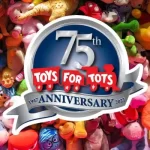Dr. Jose Arauz, a board-certified periodontist and founder of Carolina Dental Specialty Center, wants kids and adults alike to be aware of particular candies that are popular among trick-or-treaters and how they can affect one’s oral health.
“While Halloween candy is the most popular element of Halloween, it can lead to more visits to the dentists if trick-or-treaters don’t take precautions and properly care for their teeth,” said Arauz.
According to Arauz, bacteria within the mouth breaks down candy as you chew, creating an acid byproduct that is capable of dissolving tooth enamel and can lead to cavities. With some candy being better for dental hygiene than others, Arauz is sharing information about the following candies typically seen during Halloween and how they can damage teeth.
- Sour candies: Candies with a sour coating contain both sugar and acid, providing a combination that is exceptionally harmful to tooth enamel and increases risk of cavities.
- Caramels: Caramels take longer to dissolve than other candy and can stick to areas of your teeth that are hard to reach. Caramel can also wreak havoc on crowns and fillings by sticking and pulling on them while you chew.
- Jawbreakers: These candies not only contain lots of sugar, but can damage, chip or crack teeth, which may require root canals or other procedures to fix.
- Chewy candies: Chewy and sticky candies, such as Starbursts or gummy worms, are capable of lingering in tooth crevices and between teeth, which can erode tooth enamel and potentially cause cavities.
- Hard candies: Hard candies like Jolly Ranchers and lollipops pose similar threats to chewy candy, but can create more acid than can be broken down by saliva. This is because hard candy is designed to be eaten slower, allowing hard candies to be in your mouth longer than softer types of candy.
According to Arauz, chocolate is the more-preferred Halloween candy option, as it can be eaten quickly and can be easily cleaned from your teeth when brushing or rinsing.
While Arauz warns against particular candies, indulging in sweets during and after Halloween is fine if proactive steps are taken to offset the effects of sugar on the teeth. These steps include eating candy in one sitting rather than throughout the day, as well as rinsing your mouth with water after eating candy.
“While you should be extra cautious when it comes to dental hygiene during Halloween, you can still enjoy sweets and have healthy teeth,” said Arauz. “Just be sure to limit your candy intake, rinse your mouth with water after indulging, and continue to brush your teeth twice a day and floss once a day.”
For more information on proactive dental hygiene this Halloween, visit www.carolinadsc.com.About Carolina Dental Specialty Center:
Founded in [YEAR], the Carolina Dental Specialty Center specializes in periodontics, robotic dental implants, and oral medicine. Dr. Arauz is a board-certified periodontist trained in dental implant robotics, as well as a Diplomate of The American Board of Periodontology and an active member of the American Academy of Periodontology, the Academy of Osseointegration and the American Board of Periodontology.
Members of the media interested in interviewing a dentist from the Carolina Dental Specialty Center should contact our PR firm at 813.279.8335 or by emailing news@judgepr.com.





